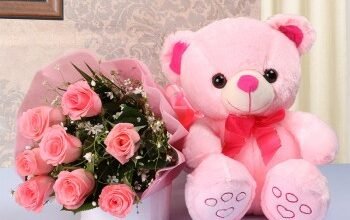
Logistics 4.0, also known as Supply Chain 4.0, is the term used to describe the use of advanced robotics, big data analytics, and the Internet of Things in supply chain management. By putting sensors everywhere, building networks everywhere, automating everything, and analyzing everything, performance and customer satisfaction are dramatically increased.
In the last few years, logistics has undergone a tremendous change: from a purely operational function that reported to sales or manufacturing and focused on ensuring the supply of production lines and the delivery to customers, to an independent cargo supply chain management system function that in some companies is already being led by a CSO – the Chief Supply Chain Officer. The focus of the supply management function has shifted to advanced planning processes, such as analytical demand planning or integrated S&OP, which have become established business processes in many companies.
Terminal Operating System
Industry 4.0” is a concept that focuses on automation of system softwares and process, terminal operating system, digitalization, and data exchange in industries. Its objective is to build a smart factory to increase system productivity and cut lead times for responding to consumer demand or unforeseen events. There is a need for greater research on the use of Industry 4.0 in supply chain management (SCM), which is a recent and important topic. A few studies have begun examining the previously published research on Industry 4.0, but they are not specifically focused on how it affects supply management.
Demand for high-individualized products and services
The demand for high-individualized products and services is continually increasing. Thus, inbound and outbound logistics have to adapt to this changing environment. Due to its increasing complexity, it cannot be handled with ordinary planning and control practices. To meet the demands and decentralization behind Industry 4.0, however, an automated, intelligent and increasingly autonomous flow of assets, goods, materials and information between the point of origin and the point of consumption and the various points in-between is key.
With warehouse management systems, freight supply chain systems, intelligent containers and driverless transportation systems, intra logistics is increasingly supporting intelligent production. However, separate technical solutions remain widespread. It might sound contradictory but it makes the supply chain management system more central in this connected and decentralizing movement in industrial transformation and the digital transformation of logistics. As intelligence and autonomy move to digital platforms and edge, the decisions and tasks of supply chain management become key since there is far more insight and monitoring to decide on overall efficiency.
Additional core tasks of smart logistics and supply chain management in the Industry 4.0 context of logistics:
Adding the right level of autonomy and intelligence to logistics in order to make logistics as such more intelligent but mainly to make it more efficient, effective, connected and agile/flexible in order to meet the needs of a far more connected economy and an increasingly real-time economy.
Starting from the goals of industrial transformation in this holistic vision of which logistics and supply chains are part, strike the right balance between self-organizing and (semi-)autonomous systems and human planning, with also a focus on action and intelligence whereby the collaboration between man and machine (e.g. robots in warehousing) and the end goals in function of changing ecosystem demands are crucial.
Core in Digital Transformation
Transforming the ways of working and managing in line with Industry 4.0 deployments, realities and aspects such as data analytics, information ecosystems, required skill sets to manage it all and take the right decision in a changing environment of decentralization, fast decision making, the development of real-time capabilities and agility with a shift from centralized organizational and planning approaches to on-demand planning and managing uncertainty (core in digital transformation overall) in far less pre-determined logistical scenarios.
Logistics 4.0 refers to the combination of using logistics with the innovations and applications added by CPS. Logistics 4.0 is related to the same conditions as Smart Services and Smart Products. We have then to consider that the technology driven approach used to define “Smart Products” and “Smart Services” and smart system softwares is used to define “Smart Logistics”. Smart products and services in coordination with smart softwares are the ones that can perform tasks that normally are performed by people. In addition, they make it possible to delegate activities so the employees can focus on the tasks that are needed more intelligence than automatic processes or the smartness that a simple smart product or smart service can provide.
Supply Chain Cloud Forms
The supply chain cloud forms the next level of collaboration in the supply chain. Supply chain clouds are joint supply chain platforms between customers, the company, and suppliers, providing either a shared logistics infrastructure or even joint planning solutions. Especially in non-competitive relationships, partners can decide to tackle supply chain tasks together to save admin costs, and also to leverage best practices and learn from each other. “Smart Logistic” is a logistics system, which can enhance the flexibility, the adjustment to the market changes and will make the company be closer to the customer needs.
This will make it possible to improve the level of customer service, the optimization of the production and make lower the prices of storage and production. As the “Smart Logistics” will change according to the actual technology driven, it has a time dependency and thus it is essential to define the state of the art of the technology.
Conclusion
The road ahead is one of more autonomy across various logistics components such as supply chain logistics, inbound logistics, warehouse management, container terminal management system, intra logistics or line feeding, outbound logistics and logistics routing. Cargo supply chains are extremely complex organisms, and no company has yet succeeded in building one that’s truly digital. Indeed, many of the applications required are not yet widely used. But this will change radically over the next five to 10 years, with different industries implementing DSC at varying speeds. Companies that get there first will gain a difficult-to-challenge advantage in the race to Industry 4.0, and will be able to set, or at least influence, technical standards for their particular industry. The advantage will by no means be limited to the greater efficiencies. The real goal will be the many new business models and revenue streams the digital supply chain will open up.



